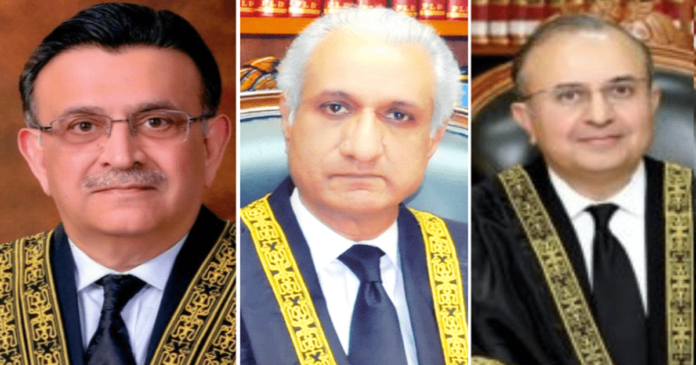ISLAMABAD: On Friday, the Pakistani Supreme Court ruled that changes made to the statutes governing the National Accountability Bureau (NAB) were invalid.
SC restore graft cases: The top court granted Imran Khan’s plea to challenge changes made to the nation’s accountability rules under the previous Pakistan Democratic Movement (PDM)-led administration by a vote of 2-1 in favour of the petition. Khan is the leader of the Pakistan Tehreek-e-Insaf (PTI).
The three-person bench, chaired by Chief Justice of Pakistan Umar Ata Bandial and comprising Justices Mansoor Ali Shah and Ijazul Ahsan, reserved judgment on the hearing held on September 5.
CJP Bandial and Justice Ahsan considered Imran’s appeal to be maintainable, while Justice Shah disagreed with the majority decision.
The top court also reinstate corruption proceedings against public officials that had been discontinue following the NAB law changes.
The National Accountability (Second Amendment) Act 2022 amended the NAB law, which the former premier had challenged in a petition to the Supreme Court in June 2022.
NAB legislation modification
As per the NAB (Second Amendment) Bill 2021, the federal government will appoint the deputy chairman of the NAB, who will assume the role of acting chairman of the bureau after the chairman’s term expires.
The measure has also reduced the NAB chairman’s term from four years. Once the law is approve, the NAB will lose its authority to pursue cases related to federal, provincial, or local tax matters.
Additionally, it has established a three-year term for the accountability court justices. The NAB is required by the proposed law to make sure that there is evidence against an accused person available before the accused person is arrested.

